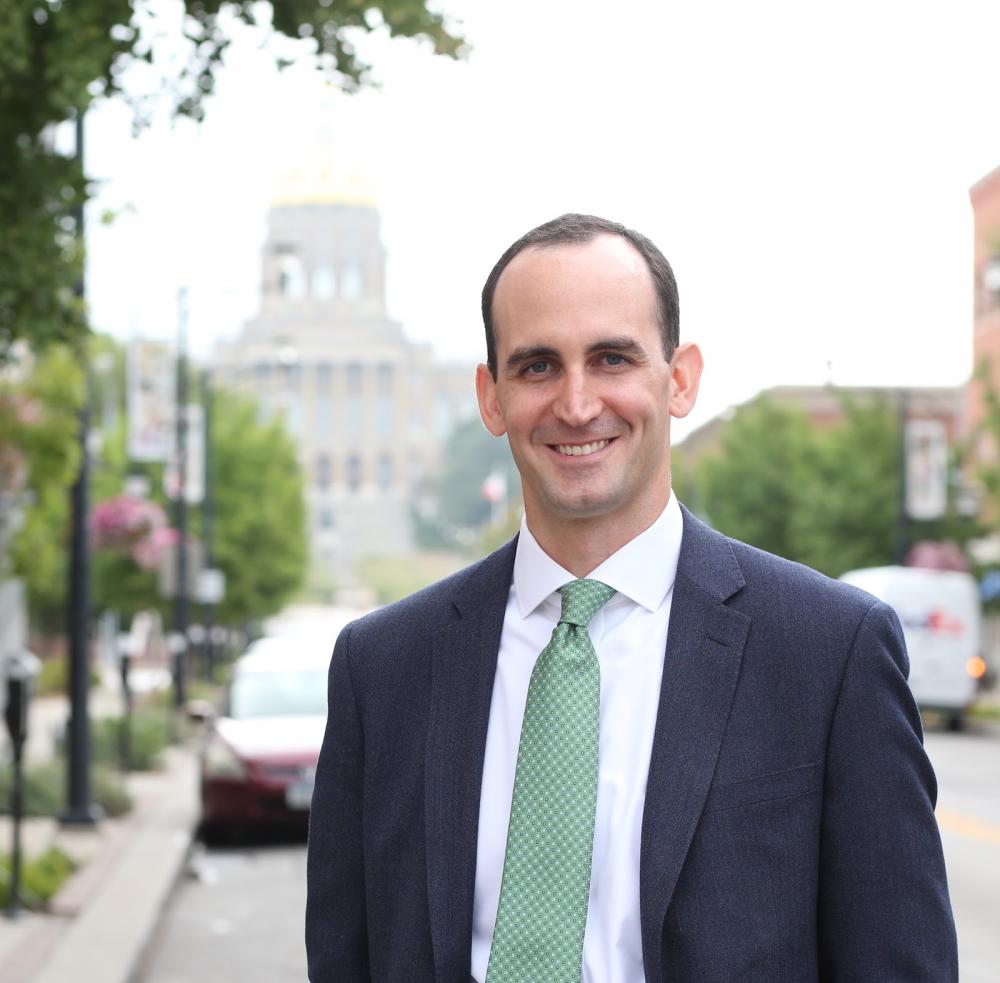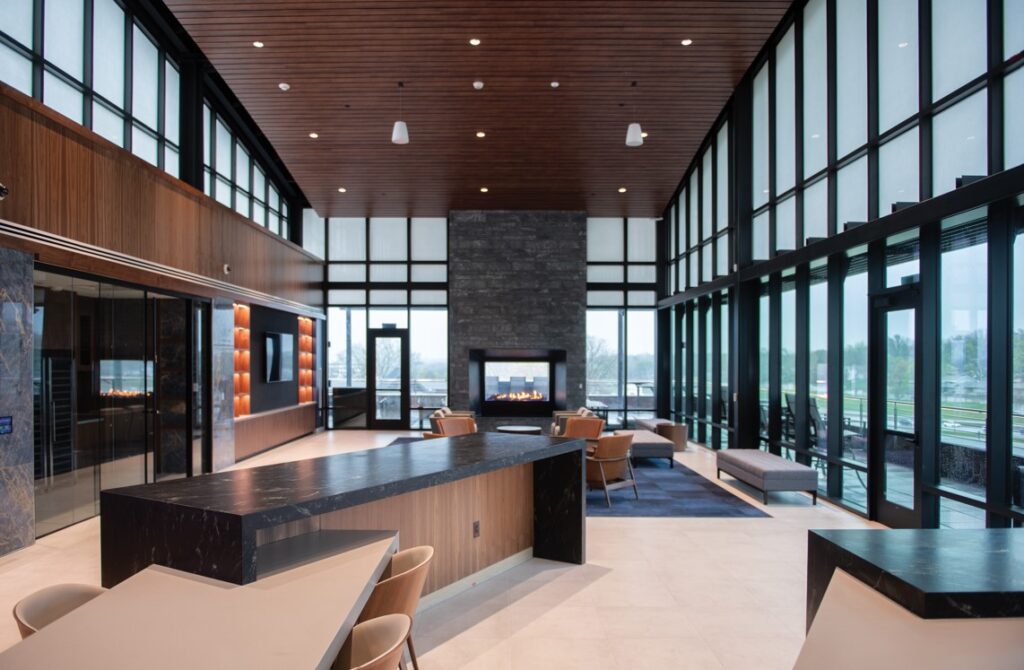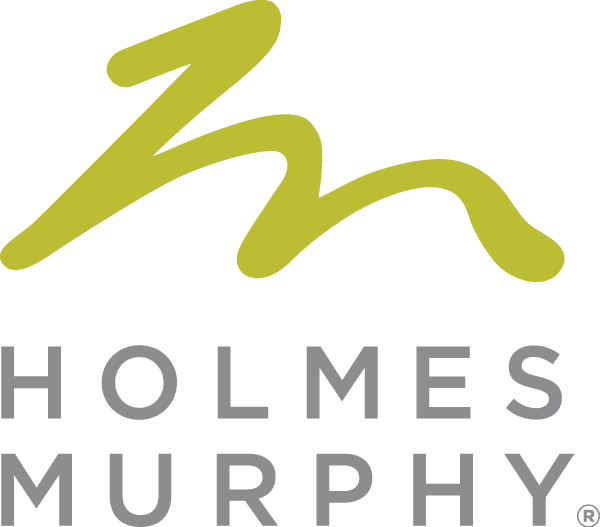Optimism continues in Iowa Business Council Q1 economic outlook


Despite that concern, the survey showed continued positive sentiment for the next six months, with the overall index at 60.42, down slightly from the fourth quarter of 2020, when it was 62.5.
It was the third straight survey that suggested a positive outlook for the next six months, which was a bright spot for the Iowa economy as it continues to recover from the coronavirus pandemic, said Joe Murphy, executive director of the Iowa Business Council, a nonpartisan and nonprofit organization whose 22 members are the chief decision-makers of the state’s largest employers.
“Coming on the heels of two really bad quarters in early 2020 [this] is great news,” he said. “A year removed from literally pandemic shutdowns, the fact we are moving forward in a very pragmatic, steady, straightforward way is good, and it gives another indication that Iowa is on the right path to not only a full recovery but a recovery position that will be more prosperous and more opportunities for individuals than it was at the beginning of the pandemic.”
Tim Yaggi, Iowa Business Council chair, said three consecutive quarters with a positive index is significant for the state’s economic outlook.
“This survey instills optimism for Iowa’s overall recovery as the vaccine rollout accelerates and working conditions start to normalize,” Yaggi said in the report.
The index ranking is based on an average of a formula the Business Council uses to measure performance in sales, capital spending and employment. A score over 50 indicates a positive outlook for the next six months.
The indicator for sales remained unchanged from the fourth quarter at 62.5, while the employment indicator also measured 62.5, an increase from 58.33 in the fourth quarter. The capital spending projection index dipped in the first quarter, dropping more than 10 points to 56.25, from 66.67 in the fourth quarter of 2020.
Murphy said the lower capital spending projection score represents “a really pragmatic, focused approach on how companies are beginning to allocate their capital throughout the remaining year and course of the next six months.”
“While it has gone down, it’s still a very positive score, and I think it reflects the broader economy as well,” Murphy said. “I think it really kind of shows that wait-and-see approach that Iowans are known for. I think it’s just that pragmatic approach that our members in particular have. They are operating in global economies, and this is an indication of where we think we’ll be for the next six months.”
According to the report, about 55% of companies don’t expect a change in their capital spending in the next six months. Thirty percent expect higher spending, and 35% expect higher or substantially higher spending.
Employment saw the biggest jump in positive sentiment in the survey, but remained a top concern for employers, the survey showed.
“I think it really just represents the situation on the ground here in Iowa,” Murphy said. “Even as we’re coming out of the pandemic, Iowa has the second-lowest unemployment rate in the country, but when paired with our labor force participation rate … it causes that strain on our labor force. It calls attention to the need for population growth in our state. If businesses can’t find the people in Iowa to expand business opportunities in Iowa, they will be forced to look elsewhere.”
The survey indicated 55% of companies expect to see higher employment in the next six months, while 30% expect no change in employment.
And that’s a position Iowa doesn’t want to be in, Murphy said.
“We want to be able to have that high-quality workforce here in the state so [companies] can have a good team here of Iowans and have those increased opportunities all throughout our state,” he said.
About 65% of companies indicated they are projecting higher sales in the next six months, the report showed.
Murphy said the first-quarter index suggests Iowa has a bright future, “but it’s not going to happen by accident.”
“We have to be very deliberate and strategic in what we do over the next six to 12 months,” he said. “A lot of that stems in trying to recruit a highly motivated and diverse workforce into our state, and deals with continuing to put forward legislative policies that will result in companies’ ability to expand in Iowa. It’s broadband infrastructure, child care, housing, competitive tax policies. We have a lot of good things going on for us in this state, but we still have to be deliberate and we will have to be very strong and strategic in our focus.”
Murphy said the turnaround Iowa has experienced since April 2020 has been “remarkable.”
“If you would have told me that we’d be where we’re at now last year at this time, I don’t think anybody would have said that’s right,” he said. “But the fact is here we are. Once again Iowa has proved its ability and resiliency to come back from a crisis. We’ve done it time and time again … and I think it speaks to not only the resiliency of Iowans as individuals, but I think it speaks to the resiliency and leadership of Iowa companies as well.”







